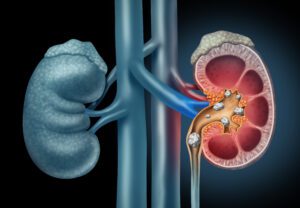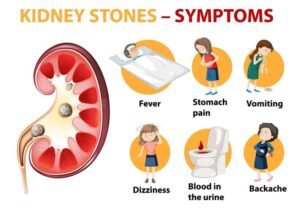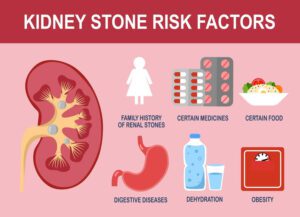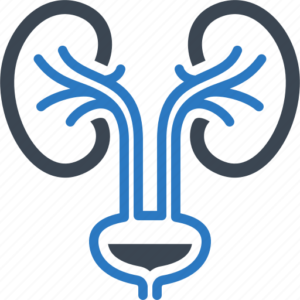Understanding Kidney Stones – Insights from a Top Urologist in Lucknow
As a seasoned urologist in Lucknow , I have encountered many cases where patients have none to very little knowledge about kidney stone . Through this blog article let me guide you to the complete kidney stone problems and treatments .
Introduction:
Kidney stones, medically known as nephrolithiasis, are solid mineral deposits that form in the kidneys and can cause excruciating pain when they pass through the urinary tract. These small, hard deposits can vary in size and shape. Their formation is often attributed to factors like dehydration, diet, and genetics. Whether you’re experiencing symptoms or have received a diagnosis, finding a kidney specialist near you is essential for effective treatment and management. In this guide, we’ll delve into everything you need to know about kidney stones and how a seasoned urologist in Lucknow can assist you through this challenging condition.
Understanding Kidney Stones:

Kidney stones are formed when certain substances in urine, such as calcium, oxalate, and uric acid, become highly concentrated and crystallize. These crystals can then clump together to form stones. Stones can be of varying sizes, from as small as a grain of sand to as large as a golf ball. Some kidney stones may pass through the urinary tract without causing symptoms. Other form of kidney stones can lead to severe pain, urinary tract infections, and even kidney damage if left untreated. Common symptoms include sharp pain in the back, side, abdomen, or groin, along with nausea, vomiting, and blood in the urine.

Symptoms of kidney stones:
The symptoms of kidney stones can vary depending on the size and location of the stone, but common signs and symptoms may include:
Severe pain: The most characteristic symptom of kidney stones is intense pain in the back, side, abdomen, or groin, often described as stabbing or throbbing.
Urinary symptoms: Kidney stones can cause urinary urgency, frequent urination, and pain or discomfort during urination.
Nausea and vomiting: Some individuals may experience nausea, vomiting, or gastrointestinal discomfort as a result of kidney stones.
Blood in the urine: Hematuria, or the presence of blood in the urine, may occur due to irritation or injury to the urinary tract caused by passing kidney stones.
Diagnosis of Kidney Stones

Causes of Kidney Stones:
Several factors can contribute to the formation of kidney stones, including:
Dehydration: Inadequate fluid intake can lead to concentrated urine, making it easier for minerals to crystallize and form stones.
Dietary Factors: Consuming foods high in oxalate, sodium, and animal proteins can increase the risk of developing certain types of kidney stones.
Genetic Predisposition: Individuals with a family history of kidney stones may be more prone to developing them themselves.
Underlying Medical Conditions: Certain medical conditions, such as hyperparathyroidism, gout, and urinary tract infections, can increase the risk of kidney stone formation.
Symptoms of Kidney Stones
Treatment Options at Urology hospital in Lucknow:

The treatment of kidney stones depends on factors such as the size, location, and composition of the stones, as well as the severity of symptoms. Treatment options may include:
Pain management: Over-the-counter pain medications, such as nonsteroidal anti-inflammatory drugs (NSAIDs), may help alleviate discomfort associated with kidney stones.
Hydration: Drinking plenty of water can help flush out kidney stones and prevent new ones from forming.
Medications: Certain medications, such as alpha-blockers or calcium channel blockers, may be prescribed to relax the muscles in the urinary tract and facilitate the passage of kidney stones.
Extracorporeal shock wave lithotripsy (ESWL): This non-invasive procedure uses shock waves to break up kidney stones into smaller pieces that can be passed more easily.
Surgical intervention: In some cases, surgical procedures such as ureteroscopy or percutaneous nephrolithotomy (PCNL) may be necessary to remove large or stubborn kidney stones.
Prevention of Kidney Stones
Consulting with a qualified urologist is essential to determine the most suitable course of action for your specific case. You can visit the best Urology and kidney Stone Hospital in Lucknow with expert care solutions and well -equipped with Latest technologies for various treatment of different types of stones and urological problems.
Lifestyle modifications and preventive measures for Kidney stone:
While kidney stones can be a recurrent condition, certain lifestyle modifications and preventive measures can help reduce the risk of stone formation, including:
Hydration: Drinking an adequate amount of water each day can help dilute urine and prevent the concentration of minerals that lead to stone formation.
Dietary changes: Limiting the intake of foods high in oxalate, sodium, and animal proteins, as well as maintaining a balanced diet rich in fruits, vegetables, and whole grains, can help prevent certain types of kidney stones.
Maintaining a healthy weight: Obesity and excess weight can increase the risk of kidney stones, so maintaining a healthy weight through diet and exercise is essential.
Regular medical follow-up: Regular check-ups with a healthcare provider can help monitor kidney function and identify any underlying medical conditions that may contribute to kidney stone formation.
Finding the Best Urologist in Lucknow:
When it comes to managing kidney stones, having a skilled and experienced urologist on your side is paramount. Here are some tips to help you find the best urology doctor in Lucknow:
1. Research Online: Start by searching online for urologists in Lucknow who specialize in treating kidney stones. Look for websites, directories, and patient reviews to gather information about their qualifications, experience, and patient satisfaction.
2. Ask for Recommendations: Reach out to friends, family members, or colleagues who have experience with kidney stones or urological issues. They may be able to recommend a reputable urologist in Lucknow based on their own positive experiences.
3. Check Credentials: Verify the credentials and certifications of potential urologists. Ensure they are board-certified, have relevant experience in treating kidney stones, and are affiliated with reputable medical institutions in Lucknow.
4. Schedule Consultations: Once you’ve shortlisted a few urologists, schedule consultations to meet them in person. Use this opportunity to discuss your condition, treatment options, and any concerns you may have. Pay attention to the urologist’s communication style, empathy, and willingness to address your questions and fears.
5. Consider Accessibility: Choose a urologist whose clinic or hospital is conveniently located in Lucknow and offers flexible appointment scheduling. This ensures that you can access timely care and follow-up visits without undue inconvenience.
Conclusion:
Dealing with kidney stones can be challenging, but with the right support and guidance from a skilled urologist, you can effectively manage this condition and improve your quality of life. By following the tips outlined in this guide, you’ll be well-equipped to find the best urology doctor in Lucknow who can provide personalized care and help you navigate through your kidney stone journey with confidence and ease.
READ MORE:- Complete Overview of Kidney Stone Treatments
Also follow us at : Dr. Abhishek kumar singh for Health management tips and information blogs.
For consultation, you can contact us at : 08948745229
Thank you!
